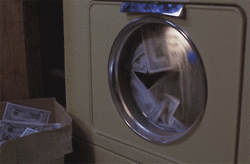In the big picture, I’m with the FT‘s Tim Harford on the issue of “economic singularity,” meaning that while I believe things may change more quickly going forward, I don’t believe scarcity will be solved immediately or soon thereafter. Not today and not tomorrow, unless we’re defining that latter term very broadly. 3D printers will be a tremendous boon in terms of material goods (though they will also bring new dangers), but the world isn’t on the verge of unbridled material wealth. That just doesn’t happen overnight.
In his latest column, Harford is skeptical that the moment of unthinkably great production has (almost) arrived, as prophesied by the messiahs of machine utopia: Robin Hanson, whom I mostly know from a rather kooky, sci-fi Ted Talk; and Ray Kurzweil, a brilliant inventor who has reinvented himself as a sage of increasingly outré near-term predictions.
Harford’s opening:
Are we nearing a dramatic moment in economic history? Before humans developed agriculture, the world population — and thus the world economy — doubled in size roughly every 250,000 years. After acquiring the power of agriculture, the world economy doubled in size roughly every 900 years. After the industrial revolution, growth accelerated again, and since the second world war the world economy has been doubling in size roughly every 15 years. These numbers have been collated by Robin Hanson, an economist at George Mason University in Virginia; they are based on educated guesses by various economic historians.
If another step change of a similar scale were to happen, the world economy would double in size between now and Christmas. That is hard to imagine but, before the industrial revolution happened, it too would have been hard to imagine. And a small band of believers, not short on imagination, look forward to an economic “singularity”. Hanson is one of them, and the computer scientist Ray Kurzweil, author of The Singularity Is Near, is perhaps the most famous.
The singularity would be a point at which, rather than humans developing new technologies, the new technologies developed themselves. They would do so at a rate far beyond our comprehension. After the singularity, our civilisation would be in the hands of cyborgs, or brains uploaded into the cloud, or genetically enhanced superbeings, or something else able to make itself smarter at a tremendous rate. The future economy might consist of rapid interactions between artificial intelligences. The idea that it might double in size every few weeks no longer seems quite so unimaginable.
But it is one thing to imagine such a future. It is another thing to have confidence that it is approaching.•
Tags: Ray Kurzweil, Robin Hanson, Tim Harford

